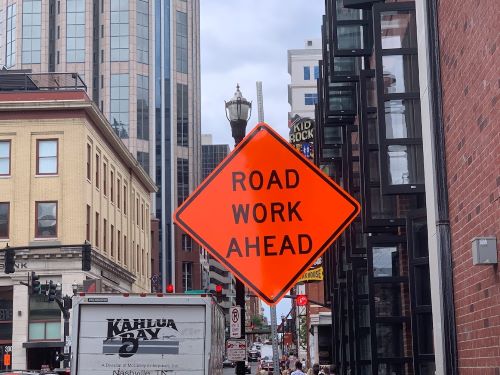Summer is prime time for road construction. With warmer weather and longer days, states take the opportunity to fix potholes, repave roads, and upgrade bridges. You’ve probably noticed more orange cones and reduced speed limit signs popping up on your usual routes. But did you know that speeding in a construction zone can cost you a lot more than a regular speeding ticket?
In many states, speeding tickets double in construction zones, even if there aren’t any workers present. That surprises a lot of drivers, especially during nights or weekends when work seems to be paused. But those extra fines are in place for a reason.

Why the Rules Are So Strict
Construction zones are filled with hazards. Narrow lanes, uneven pavement, and shifting traffic patterns make driving more dangerous. Lower speed limits help reduce the risk of a collision for both drivers and workers. Even if no one is on-site at the moment, the road is still an active work zone. Equipment may be left near the roadway, lanes may be blocked, or markings might be confusing. Reduced speeds help everyone get through safely.
How the Fines Work
The exact fine amount varies by state, but here’s the general idea: if the regular speeding ticket is $150, you might pay $300 or more for the same offense in a construction zone. Some states even add points to your driving record or increase the fine for every mile per hour over the limit. In a few areas, you could face a license suspension for extreme speeding in a work zone.
States With Strict Construction Zone Laws
Many states have laws in place that automatically increase fines in construction areas, whether workers are present or not. For example, Pennsylvania, Illinois, and Virginia are known for tough penalties in work zones. Florida and Texas also step up enforcement during major summer projects, and some states post signs to remind drivers about the increased consequences.
What Drivers Often Get Wrong
Speed limits in construction zones are not suggestions. They’re legally enforceable, and in many places, officers actively patrol these areas, sometimes with cameras or photo radar to catch violators. Here are some of the things drivers often get wrong about construction zones:
- Assuming it’s okay to speed if workers aren’t visible
- Ignoring reduced speed limit signs if it looks like nothing is happening
- Thinking enforcement is relaxed during evenings or weekends
Tips for Safe Driving in Work Zones
It’s easy to stay safe in work zones if you follow these tips:
- Slow down as soon as you see signs or cones
- Follow the posted speed limit through the entire zone
- Be alert for sudden lane shifts or stopped traffic
- Leave extra space between you and the vehicle ahead
Even if it feels like you’re crawling through a long construction zone, it’s worth being patient. You’ll protect road crews, other drivers, and yourself from harm, plus you’ll avoid a hefty ticket.
Stay Smart This Summer
This time of year brings sunshine and construction delays. While you can’t avoid every slowdown, you can choose to drive safely and legally through work zones. Doubled fines might sound harsh, but they’re designed to save lives and prevent serious collisions.
Interested in learning more about traffic safety?
Are you looking for defensive driving and traffic school courses? Do you want a discount on your auto insurance? Do you know a teen who’s ready to take an online driver education course?
Safe2Drive is here to help! We offer convenient online courses for drivers of any age! Visit our website today to learn about the online courses we offer in your state.